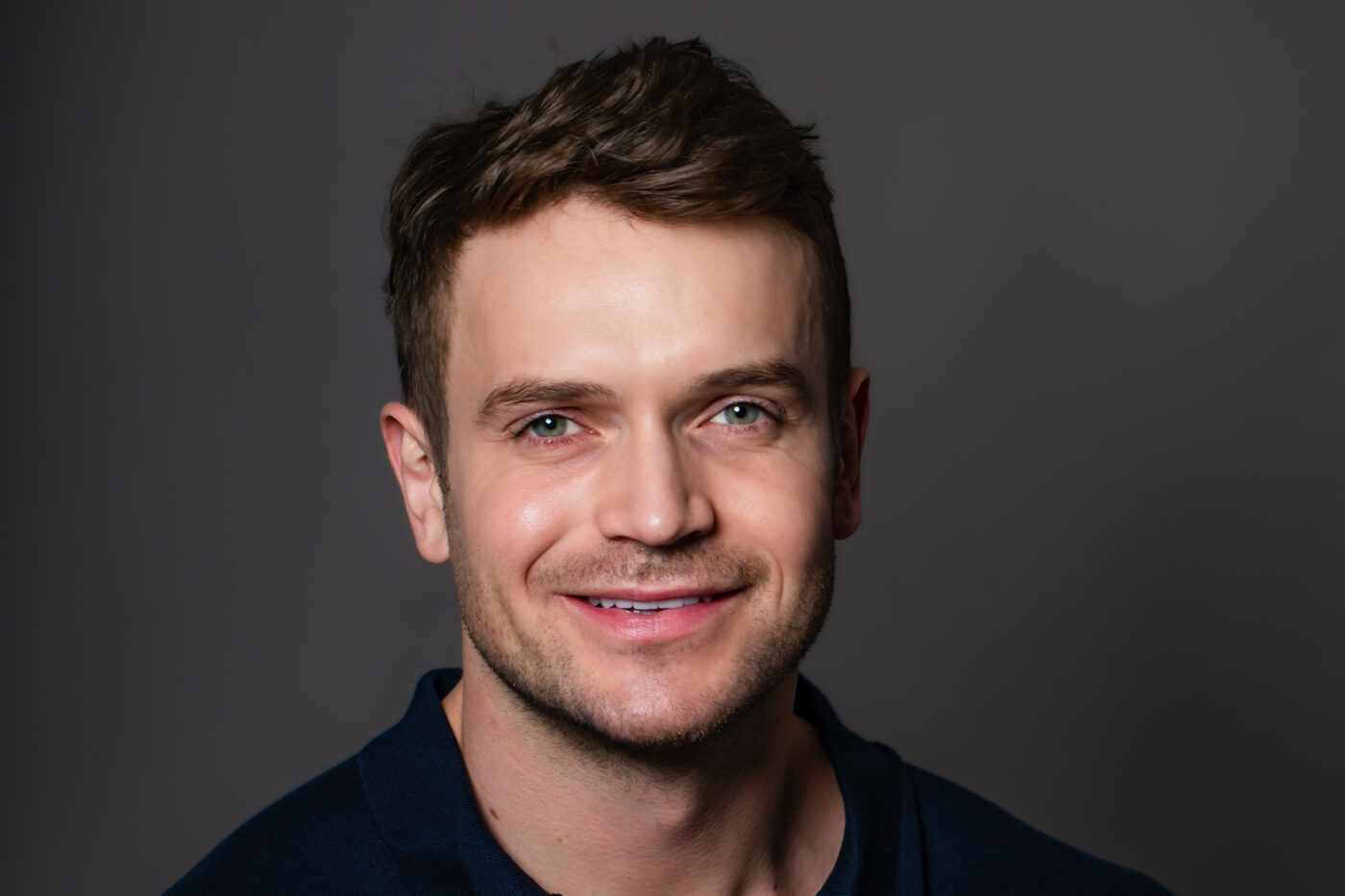We sat down with up-and-coming psychedelic medicine tycoon, JJ Wilson, to talk about what makes psychedelics so great and why we need them so badly…
Here at DMARGE, we’ve been all over the psychedelics and mental health story from the very beginning. Keeping you abreast of every twist and turn in the drugs’ journey from hippie hobby to healthcare revolutionary, questioning the real cost of psychedelic therapies, and even trying one or two ourselves… Now, we’ve landed the biggest scoop of them all: the chance to chat face-to-face with one of the people spearheading the rollout of Australia’s pioneering legalisation.
JJ Wilson may be best known by some as the son of visionary Lululemon founder Chip Wilson, but in the early years of his fledgling career he’s proved to be a lot more than just somebody’s son: JJ is a next-generation leader who hopes to drive impactful change through his own ventures, including through psychedelic medicines designed for globally regulated markets.
📧 Like This Story? Sign Up For Our Newsletter 📧
Currently working with Paul Stamets and Rick Doblin on multiple psilocybin and MDMA projects that could commercially globalize psychedelics on a scale never seen before — including the very exciting Optimi — where Chip revolutionized activewear, JJ’s vision could drive the same change with psychedelics as he becomes the single largest supplier of regulated psychedelic medicines throughout the world.
While psychedelics is to our mind — and for so many Aussies already — a long overdue breakthrough into an overburdened, under resourced, and frankly unproductive mental health treatment ecosystem, it remains a hotly debated subject which, regardless of your personal feelings on the topic, demands a good bit of scrutiny. That’s why we couldn’t turn down the chance to ask one of the industry’s up-and-coming tycoons some hard-hitting questions about what makes psychedelics so great, why we need them so badly, and just how large we should expect their impact to be…
WATCH: Dr Robin Carhart-Harris on why psychedelics could be such a game-changer.
Are Psychedelics “The Next Yoga”?
First things first, we wanted to interrogate JJ on one of his most famous sayings: “Psychedelics are the next yoga.” Where does that phrase come from, and what exactly does he mean by it?
Perhaps unsurprisingly, the notion follows in his Father’s approach to spotting a changing tide. Describing his father’s first acknowledgements that yoga could be the next big thing, and how that process paralleled his own journey in regard to psychedelics, he had this to say:
“When you start seeing, reading and feeling a shift in the world, and it hits you consistently, three or four times over the head… that’s something worth taking a good look at. You have to ask yourself what it’s going to do for the world, whether there’s a reason why people are writing about it, whether there’s a reason why people are talking about it.”
JJ Wilson
Before going on to explain the links he noticed between yoga and psychedelics. Or, rather, the same opportunities they offered up in their twin rises to prominence…
“I think yoga created that initial desire for pause, to increase in balance in people’s lives. Especially women, who were [for the first time in recorded history] working five days a week, trying to build a career, travelling, trying to stay fit and healthy, trying to raise a family trying to be a good way of trying to be a good mom…
Now, if you add on the layer of social media and the media landscape in general, that complexity and amount of information — the number of ways that people can access that information — there’s just so much coming at people, and psychedelics offer a new kind of balance.”
JJ Wilson
The Moment(s) Everything Changed

Next, I asked JJ whether there had been a single moment that made him realise the power of psychedelic mental health treatment and, specifically, that they were powerful enough for him to start building an empire around full-time…
However, it turns out that there wasn’t a single moment that the lightbulb suddenly switched on, rather it was a gradual process fuelled by a series of powerful interactions:
“I had conversations with individuals who had done various medicinal treatment plans — whether that’s a psilocybin-induced hero dose treatment or a ketamine treatment — and they’d come out and said ‘my entire life and perspective on how I was living has changed… I feel like I could conquer the world.’ When you have those anecdotal moments with people you can actually see that they just feel so much better about who they are.”
JJ Wilson
All that remains is to empower the few hold-outs with the knowledge and understanding they need to appreciate just how beneficial psychedelics could be:
“I think people are open to it. I think they’re excited about it. And I think that the more proof through the clinical trials that we can prove that it actually works.”
JJ Wilson
What Are The Biggest Barriers To A Full-Scale Psychedelics Roll Out?
Even though the battle for the hearts and minds of the public may have already been won for the most part, the biggest hurdle of them all still remains: convincing the high and mighty minds in the global regulatory frameworks that psychedelics can and should be unleashed on the world…
“The regulatory environment… it’s just a slow process. A traditional drug might take anywhere from five to ten years to be approved after you go through human trials… Even [though psychedelics are] a natural product, they still need to be approved. It’s not a matter of ‘Do I see this not happening?’ and it’s not a matter of ‘What are the complications in getting there?’ We know it’s going to happen, it’s just a matter of time.”
JJ Wilson
📧 Like This Story? Sign Up For Our Newsletter 📧
And while the delays can be frustrating, given that helping as many people as possible as quickly as possible is JJ’s “number one priority”, he wants to make it clear that he’s not embittered by the process; he knows it’s just the same tried and tested procedure that any other drug would go through…
“I don’t think it’s any different than any [other type of drug]. I’ve never worked in this world before, I’ve never dealt with the FDA, I’ve never dealt with Health Canada… but that’s why I hired a lot of brilliant people around me…
Our CEO, Bill, comes from a pharmaceutical background and knows this world. When I’m sitting there in meetings asking ‘why [does regulatory procedure take so long]?’, everyone looks at me and says: ‘This is just the way it goes.'”
JJ Wilson
Integration Or Revolution?

One of my most burning questions for JJ was one that has been on the lips of many people during the long road to psychedelic legalisation, especially those within the healthcare lobby who may have a vested interest in ensuring that psychedelic legalisation has as little impact on the medical status quo as possible:
Can psychedelics integrate with pre-existing medical frameworks, or are we witnessing the start of a revolution?
“For the next two decades it should be managed from a regulatory environment and through a traditional medical model. I think there’s too much ambiguity of how to use them otherwise. However, the number of private psychedelic treatments that you can already undergo — whether it’s at a resort, a retreat, a shamans cave — I don’t believe it’s going to be possible for the regulatory environment to ever fully control them…
But the actual medical use case for those people that need serious, rudimentary and strong treatment plans, that need observation and guidance and structure and support — such as counselling and therapy throughout the process — are all incredibly important and can be better facilitated through a traditional medical model.”
JJ Wilson
The Good-Vibes Gold Rush
As JJ and I felt a little more comfortable around one another, I thought I could chance my arm at a question about the people set to make quite a lot of money from psychedelic legalisation which, if things go his way, JJ could definitely become…
Is there a psychedelic gold rush coming? And is that something we should be worried about?
JJ’s immediate response was the draw a careful but crucial distinction between this potential gold rush and the one that preceded it…
“The opioid Gold Rush saw a monetization opportunity for things like cocaine, heroin, crack cocaine — hyper, hyper, hyper addictive drugs. [Whereas] most of the drugs in the psychedelic camp actually have been proven to not be addictive at all. [We’re saying to regulators] ‘here’s the structure safe way that we’re recommending that this be deployed to help people’ because, ultimately, that’s really what the intention is: to help people.”
JJ Wilson
Noble as this may sound and true as I believe it to be, that doesn’t mean that there aren’t set to be billions of dollars lying on the table, waiting for someone to step up and claim it… so what makes this situation better than leaving the so-called “black market” to tick over as it has done for so long?
“The longer the regulatory environment takes… more and more people are going to get more and more curious and take action to solve things for themselves. Like any new emerging industry or market, there’s gonna be money to be made for sure, but I want to help people get the best treatment options they can in the safest and most structured way possible. That’s my number one priority.”
JJ Wilson
Why Is The World So Unhealthy?

I wanted to round out my time with JJ by asking two final questions, one darker, one lighter. For the sake of being able to finish on a high — if you’ll excuse the pun — I started off with my slightly less pleasant question and returned to something JJ had said at the very start of our conversation…
📧 Like This Story? Sign Up For Our Newsletter 📧
We know the world is in the midst of a mental health crisis — that’s why psychedelics have come to the fore so rapidly — but why exactly is the world so mentally unwell and, in particular, why are men so mentally unwell?
“I think the internet has given men the ability to successfully be alone for a longer period of time. I think access to porn, in that regard, is a problem [that’s] only going to get worse with AI. I think if we’re talking specifically about men under forty… their life is online. I think I think the internet has allowed men to have less sense of community and I think men have a poor ability to create community naturally.”
JJ Wilson
The Psychedelic Supermarket
While JJ’s last answer is food for thought — and pretty deep thought at that — my final question was tinged with an optimism that JJ picked up and ran with.
If everything goes according to plan, if psychedelics become fully legalised, rolled out, and “mainstreamed”, what does that world look like, and how does mental health change?
“Not only will you be able to access a psychedelic-led treatment in exactly the same way that you access a psychologist or a therapist now, but you’ll be able to purchase psychedelics to take like you would a daily multivitamin — people will be microdosing every single day. I don’t want to sound naive or utopian — psychedelics won’t work for everyone — but I’m certain they’ll work for over 70% of the population and that they could totally change the lives of those people”.
JJ Wilson
It’s heady stuff, there’s no doubt about that. JJ Wilson has set himself at the forefront of a psychedelic revolution that may be long and slow but is, almost undoubtedly, going to happen. Not only is it going to happen, but it’s set to happen at scale and force, with Australia marking the first domino to fall in a long string of countries that are set to follow…
While the thought of the psychedelic supermarket at the end of the street will be a draw for many but a turn-off for some, it’s worth remembering the famously misquoted Hemmingway phrase: “How did you go bankrupt? Slowly, then all at once”. That’s how revolutions usually happen too. So, fear not Mr Wilson, your time is coming, and we at DMARGE are happily following you through the looking glass…
